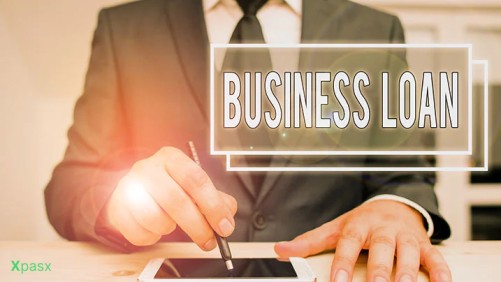Table of Contents
Business Loans

A business loan is a financial product designed to provide capital to businesses for various purposes, such as expanding operations, purchasing equipment, managing cash flow, or funding other operational needs.
In this article on xapsx, we will discuss business loans in detail.
Types of Business Loans
Term Loans
A lump sum of money that businesses repay over a set period with fixed or variable interest rates. These can be used for major investments like expansion or large equipment purchases.
SBA Loans
Loans guaranteed by the Small Business Administration (SBA), offering lower interest rates and longer repayment terms. These are ideal for small businesses that might not qualify for traditional loans.

Lines of Credit
A flexible loan option where businesses have access to a predetermined amount of money that they can draw from as needed. Interest is only paid on the amount used.
Equipment Financing
Loans specifically for purchasing business equipment, using the equipment itself as collateral.
Invoice Financing
Allows businesses to borrow against their outstanding invoices, providing quick access to cash based on accounts receivable.
Merchant Cash Advances
A lump sum of money in exchange for a percentage of future sales or receivables. This option is often used by businesses with high credit card sales.
Microloans
Small loans typically offered to startups or small businesses by nonprofit organizations or community lenders, often with favorable terms.
Uses of Business Loans
Working Capital
To cover daily operating expenses and manage cash flow.
Expansion
For opening new locations, entering new markets, or scaling operations.
Equipment Purchase
To buy machinery, vehicles, or technology essential for business operations.
Inventory Purchase
To stock up on inventory, especially in anticipation of high demand periods.
Debt Refinancing
To consolidate existing debts into a single loan with better terms.
Real Estate Purchase
To buy or lease commercial property.

Interest Rates and Terms
Interest rates on business loans can vary widely based on the type of loan, the lender, the borrower’s creditworthiness, and market conditions. Generally, SBA loans offer lower rates due to government backing, while merchant cash advances and short-term loans might have higher rates due to increased risk.
Term Loans
Fixed or variable interest rates, typically ranging from 4% to 13% annually.
SBA Loans
Rates generally between 5% and 8%.
Lines of Credit
Interest rates typically range from 7% to 25%.
Equipment Financing
Rates often between 8% and 30%.
Invoice Financing
Factoring fees usually range from 1% to 5% of the invoice amount per month.
Merchant Cash Advances
Effective APRs can be quite high, often ranging from 20% to 250%.
Eligibility and Application Process
Eligibility for business loans depends on various factors, including the business’s credit score, annual revenue, time in business, and the loan amount requested. The application process generally involves:
Documentation
Providing financial statements, tax returns, business plans, and legal documents.
Credit Check
Lenders will check both business and personal credit scores.
Loan Proposal
A detailed explanation of how the loan will be used and how the business plans to repay it.
Collateral
Some loans may require collateral, such as property or equipment.

Bottom Line
Business loans are essential financial tools that help businesses grow, manage cash flow, and invest in new opportunities. With various types of loans available, from term loans and SBA loans to lines of credit and equipment financing, businesses can choose the option that best fits their needs. Understanding the terms, interest rates, and eligibility criteria is crucial for securing the right loan and ensuring it contributes positively to the business’s financial health and growth.
- If you wish to learn more about loans visit our page on loan.